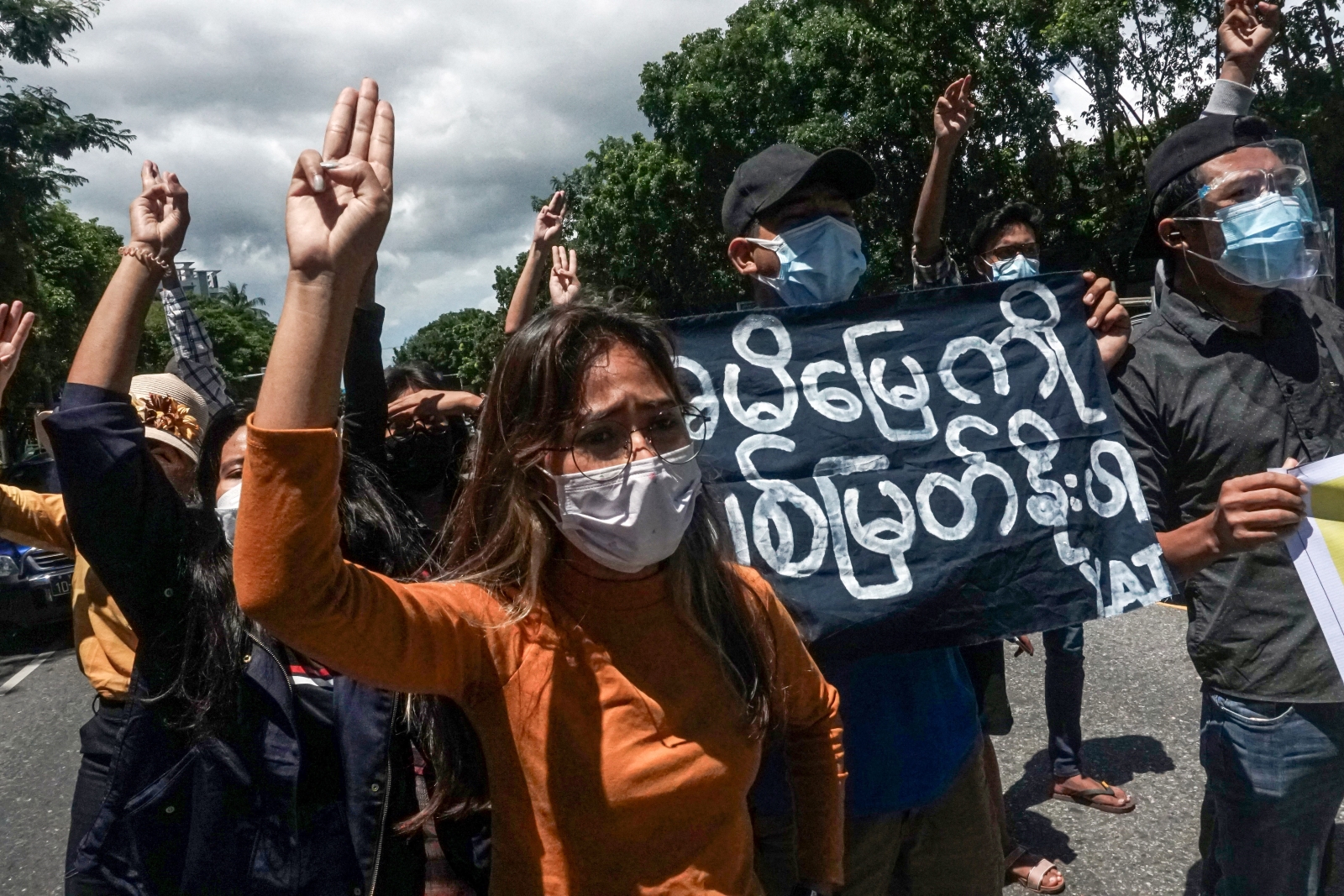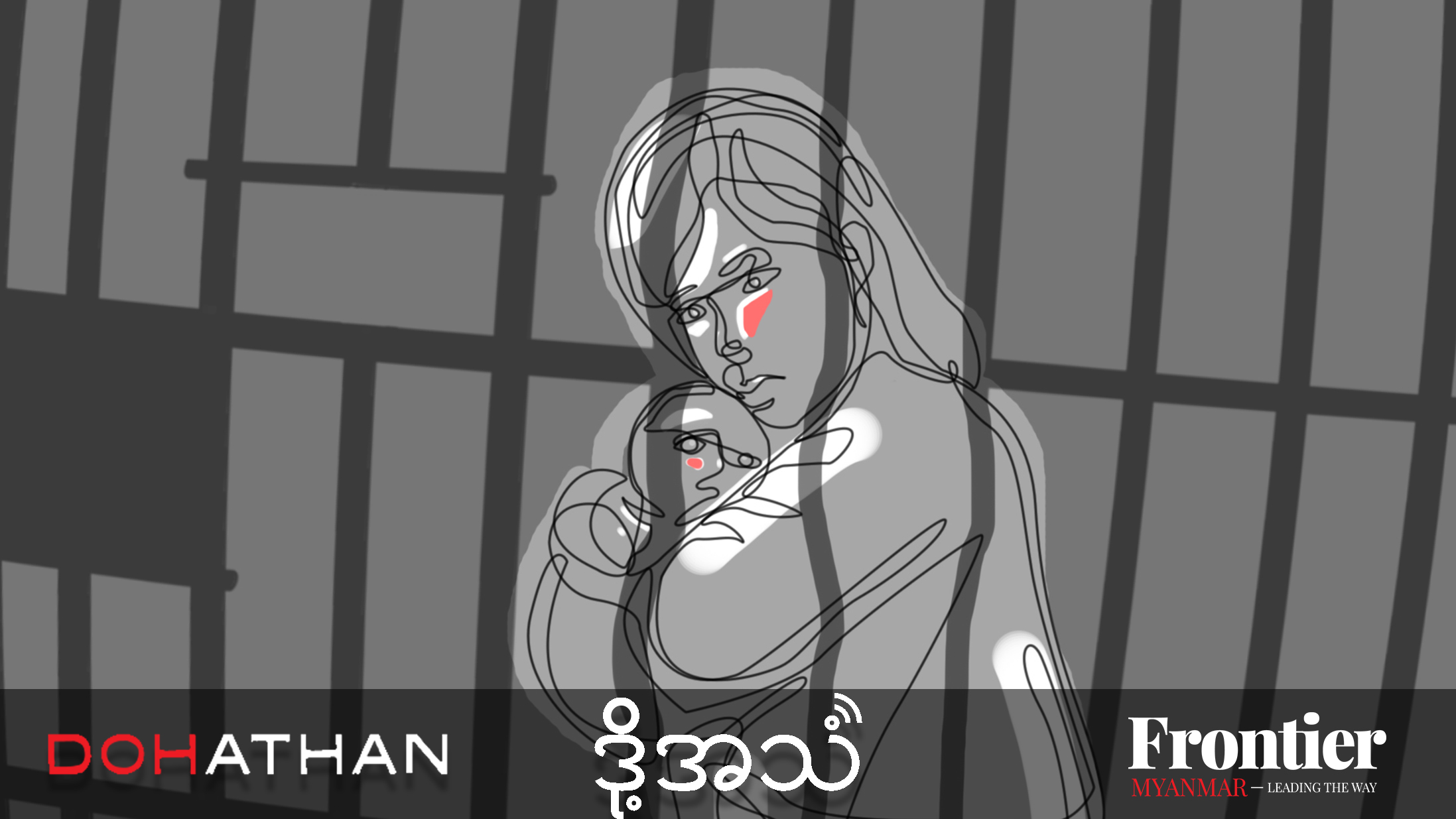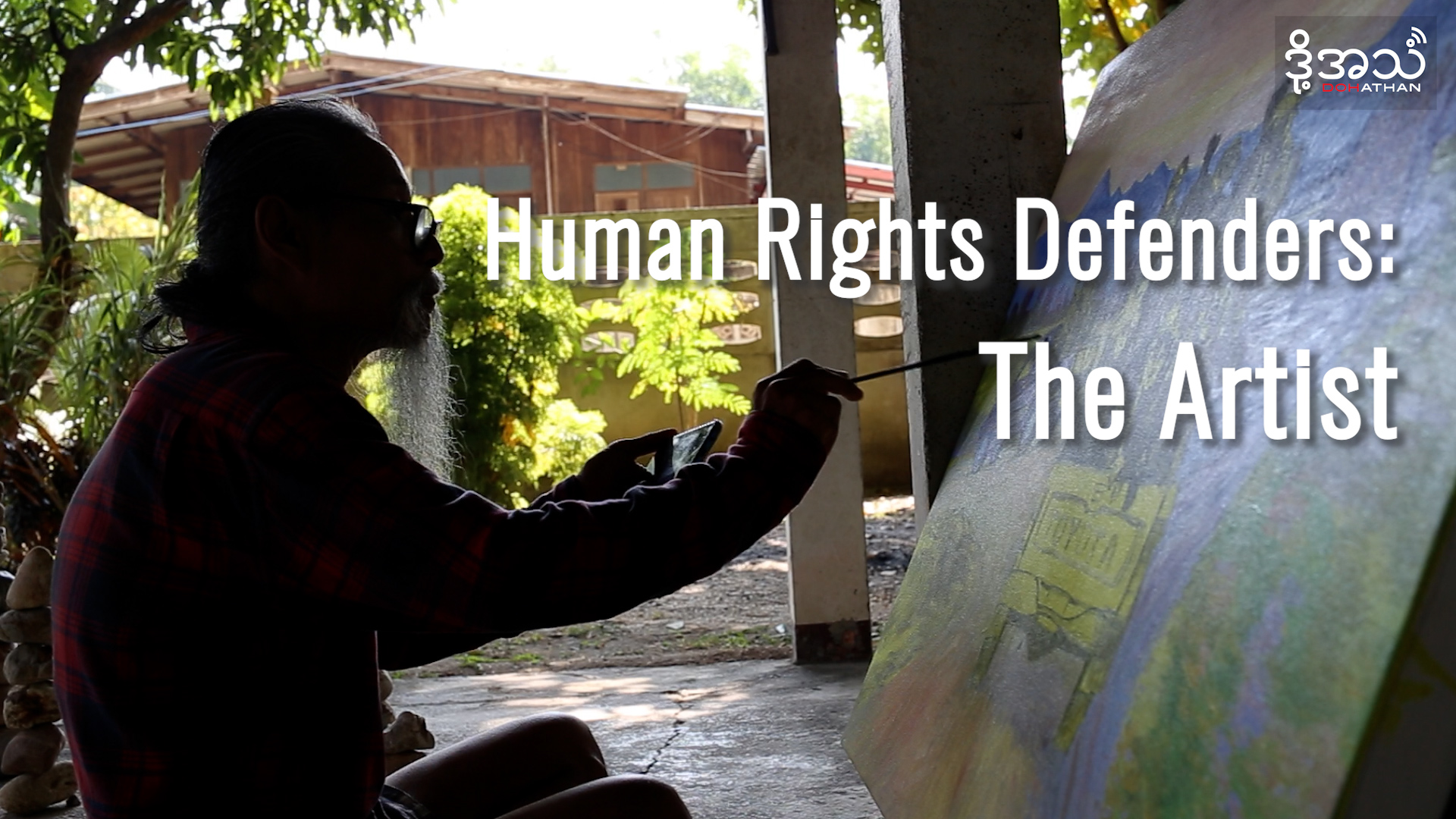By SEAN GLEESON | FRONTIER
YANGON — U Nyi Nyi Lwin walked out of the Thanlyin courthouse on Friday morning a free man, as authorities suddenly dropped four-year-old charges that had threatened to keep him behind bars for years.
Nyi Nyi Lwin, better known by his ordination name U Gambira, found worldwide fame as one of the leaders of the so-called Saffron Revolution in 2007, a countrywide demonstration against military rule that ended with a violent crackdown by authorities.
He was brought from Mandalay to Insein Prison on Sunday to face outstanding charges in Bahan and Thanlyin township courts over his 2012 occupation of monasteries that had been shuttered by authorities following the Saffron demonstrations. If found guilty by both courts, Nyi Nyi Lwin could have faced a maximum cumulative sentence of six years’ imprisonment.
Robert San Aung, Nyi Nyi Lwin’s defence counsel, confirmed that both courts had dropped the charges on Friday morning.
Support more independent journalism like this. Sign up to be a Frontier member.
Nyi Nyi Lwin had spent the previous six months incarcerated at Mandalay’s Obo prison in controversial circumstances, after being convicted of an alleged immigration offence in January.
Vani Sathisan, international legal advisor for the International Commission of Jurists, told Frontier in March that the prosecution had not adequately proven that Nyi Nyi Lwin had committed a crime under the Immigration Act.
She added that the Maha Aung Myay Township Court had not taken into account Nyi Nyi Lwin’s severe mental health issues — a result of his four-year incarceration after the 2007 demonstrations — after the presiding judge decided to repeatedly deny bail applications.
Since leaving Myanmar for Thailand in mid-2013, Nyi Nyi Lwin had visited Myanmar several times without incident.
On Friday afternoon, he met with United Nations Special Rapporteur Yanghee Lee, who is concluding her latest in-country assessment of Myanmar’s human rights situation.







